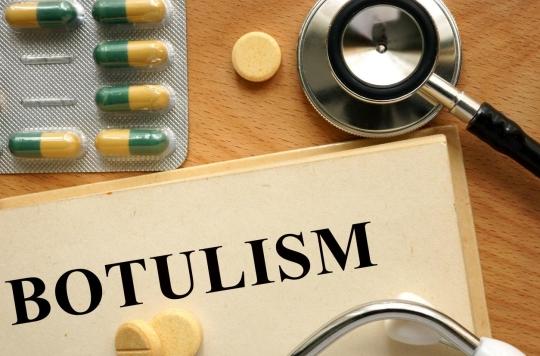Although only 68 cases of botulism were recorded in France between 2013 and 2016, the disease is nonetheless dangerous. Simple gestures such as not breaking the cold chain or keeping your refrigerator at a temperature lower than or equal to 4°C are necessary to protect yourself.

Pay attention to the expiry date of the food you eat! A resident of Essonne (91) is “almost totally paralyzed […] with very little hope of recovery,” according to The Parisian, because she ingested a vegetable soup that had expired three weeks ago. She thus contracted botulism, a “serious neurological condition caused by a very powerful toxin produced by the bacterium Clostridium botulinum”, indicates the Pasteur Institute. This, tasteless, colorless and odorless, develops mainly in poorly preserved foods.
Symptoms ranging from digestive upset to limb paralysis
“To date considered the most powerful poison that exists”, according to ANSES (National Agency for Food, Environmental and Occupational Health Safety), botulinum toxin does not need to be ingested in large quantities to trigger botulism. A few grams of food containing it are sufficient for an adult to contract the disease. “In a newborn or a young child, the ingestion of ten to a hundred spores is capable of causing a toxi-infection, which can represent quantities as low as a few mg of food such as honey or some dust”, explains ANSES.
It takes a few hours – or even days – for the symptoms of botulism to appear. Digestive disorders (vomiting and diarrhoea), constipation, blurred vision, dry mouth, difficulty swallowing and speaking, are the main symptoms of the disease. It is also possible to suffer from paralysis of the limbs and respiratory muscles in the most severe forms of botulism. “It is this respiratory failure that leads to death”, specifies the Pasteur Institute.
5 patients in 2017
Between 2013 and 2016, botulism affected 68 people in France, according to the agency Public health France. In 2017, 5 patients were identified. A figure that has been decreasing for nearly 30 years, since the disease incidence rate was 0.08 per million inhabitants in 2017 compared to an average of 0.37 per year over the period 1991-2016. Despite these a priori encouraging data, vigilance is required: “Botulism remains a rare pathology in France, but continued surveillance is necessary in order to identify early the possible emergence of a new type of toxin or the in question of a new food”, thus warns Public Health France.
If we distinguish wound botulism (caused by the inoculation of spores of the bacteria in a wound) from infantile botulism (observed in infants under one year old) and from botulinum intoxication (caused by ingestion of botulinum toxin in food), the latter is the most common form of the disease. Foodborne botulism thus affected 36 of the 39 outbreaks affected over the 2013-2016 period.
The reflexes to adopt
ANSES lists several high-risk foods, such as mortadella, raw, salted and dried ham, cold meats (sausages, pâtés), canned vegetables (such as asparagus, green beans, carrots, peppers, Greek olives, pumpkins, etc.) .), meat-based cured beef, salted and dried fish, fish marinades, and, finally, fermented fish or seal meat, with vacuum packaging. Since foods that have not undergone a thorough sterilization process can be dangerous, the consumption of homemade canned vegetables and home-made or family-run cold cuts should be done with caution.
Even if they come from supermarkets, it is recommended to pay particular attention to cans and not to eat them if they are damaged, or if they give off a suspicious smell when opened. Setting your refrigerator to a temperature less than or equal to 4°C, not breaking the cold chain, respecting expiry dates and storage instructions, and not giving honey to children under one year old are also reflexes to adopt to protect yourself from botulism.
.
















